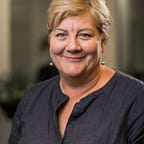Children. Contemporary canaries in the coal mine?
When it comes to the future of the planet, children really are the proverbial ‘canaries in the coal mine’. They provide us with advance warning that all is not well with the world, yet unlike actual canaries, they offer us solutions, that if implemented, would return a positive real-life outcome for them.
Surely then, it’s time we started to use their insights and experiences in our scenario planning, long term strategies, and horizon scanning to ensure we are ready to scaffold and support these 21st Century citizens into the future?
Our 2030 high school graduates are currently 8 years old. The qualified tradies of 2030 are now in grade 4. What they experience now, the opportunities available to them, and the encouragement they receive, will have an impact on how healthy, educated and engaged they are as full-grown citizens.
We can learn much from how they speak about themselves and from their views on adulthood, community, relationships, and challenges. When we listen to their aspirations, barriers, and worries, we gain insight into where our efforts need to be placed, thereby helping to navigate them toward a future they’ve envisaged.
Just as when parents understand their children’s hopes and dreams and can help navigate their growth and development toward them, the same is true of governments. Those that listen and understand when children tell them what matters most, and then act on that information will have the best communities.
Our children are currently telling us that too many of the adults in their lives are stressed, and that this is affecting them now. They’re telling us this makes them nervous about the future. They’re telling us they’re concerned about the constant tests, measurements, and comparisons they are subjected to, and that they’re really worried about issues facing society — big issues like climate change and poverty. They’re also telling us that they want to know more about the good things that are happening, so they can feel positive about the future and not always facing doom and gloom.
These are not the same things that concerned children in the ’90s and ’00s. These are by-products of vast technological and sociological shifts occurring around children now. Today’s children are growing up, learning, and navigating relationships in a hyperconnected, fast-paced world. Their diverse and complex lives have been shaped by rapid technological, cultural, political, and environmental change, with decisions being made by leaders, decision-makers and policy developers that directly affect their lives.
As critical stakeholders and citizens, children and young people have a right to inform the development, design, and implementation of legislation, policies, programs, and services that have a direct, or indirect impact on them, both now and into the future.
Children are asking adults to take a sharper focus on their rights, interests, and wellbeing, and to integrate these into economic, social, and environmental policy. Children want more of a voice, and to be taken seriously — in the classroom, in their homes, in the community, and at government level. Adults (ideally) want children and young people to see that change is possible, and that they (adults) can be effective in addressing the issues children have raised, and told them they see as the most important.
Being heard is key to children making their own lives better. It’s also key to improving whole communities. By listening, empathising, and validating children’s lived experiences, we will be building enduring relationships with them that are grounded in trust.
By directly addressing their concerns now, we will be intervening early to do things differently for their benefit. Or, we can ignore the canary, scratch our heads in 2030 and ask ourselves then, why we didn’t act earlier.
Helen Connolly, Commissioner for Children and Young People SA
About the Commissioner’s Student Voice Postcards initiative
Now in its third year, the Commissioner’s Student Voice Postcard initiative is designed to encourage engagement with primary school aged children by asking them to respond in their own words, to four questions themed around what matters most to them.
In 2019 and 2020, over 16,000 postcards were received via this initiative from children living in metropolitan Adelaide, SA regional centres, and rural and remote communities. Across government, business, and community, the views, perspectives, ideas and experiences of primary-aged children need to be included and acted upon.
If you want to know more about what South Australian children and young people are saying matters to them most, read The Things That Matter (2019) and The Things that Matter Most 2 (2020) downloadable from ccyp.com.au/ccyp-reports. If you’d like to know more about the Commissioner’s Student Voice Postcard initiative visit commissionerspostcards.com.au
